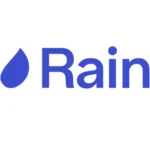General Motors and LG Energy Solution plan to convert part of their Tennessee battery factory to produce cheaper lithium iron phosphate cells by late 2027, responding to sluggish electric vehicle demand that has forced automakers to prioritize affordability over premium performance.
The Ultium Cells joint venture will retrofit production lines at its Spring Hill facility, which currently manufactures higher-cost nickel-cobalt-manganese batteries for premium EVs. Industry estimates suggest switching from NCM to LFP could cut battery costs by 20-30%, lowering per-vehicle expenses by at least $6,000.
The pivot reflects broader industry pressure as slower-than-expected market transition toward electrification has left automakers scrambling to make EVs accessible to mainstream buyers. LFP cells cost over 20% less than NCM batteries, with average LFP prices below $60 per kilowatt-hour in 2024.
The move will give LFP production in the United States a significant boost, as the vast majority of these cells are currently made in China. Chinese companies CATL and BYD dominate global LFP manufacturing, creating supply chain vulnerabilities that US automakers are eager to address.
The Spring Hill plant represents a notable strategy shift for GM, which sold its stake in a third Ultium facility to LG Energy just before completion and put plans for a fourth plant on hold. The automaker originally bet heavily on premium battery chemistry to differentiate its EVs but now faces market realities demanding cheaper alternatives.
While LFP batteries sacrifice some energy density compared to NCM cells, their lower material costs and improved safety profile make them attractive for mass-market vehicles. GM and LG are also developing lithium manganese-rich batteries that promise 33% higher energy density than LFP at comparable costs, targeting commercial production by 2028.



